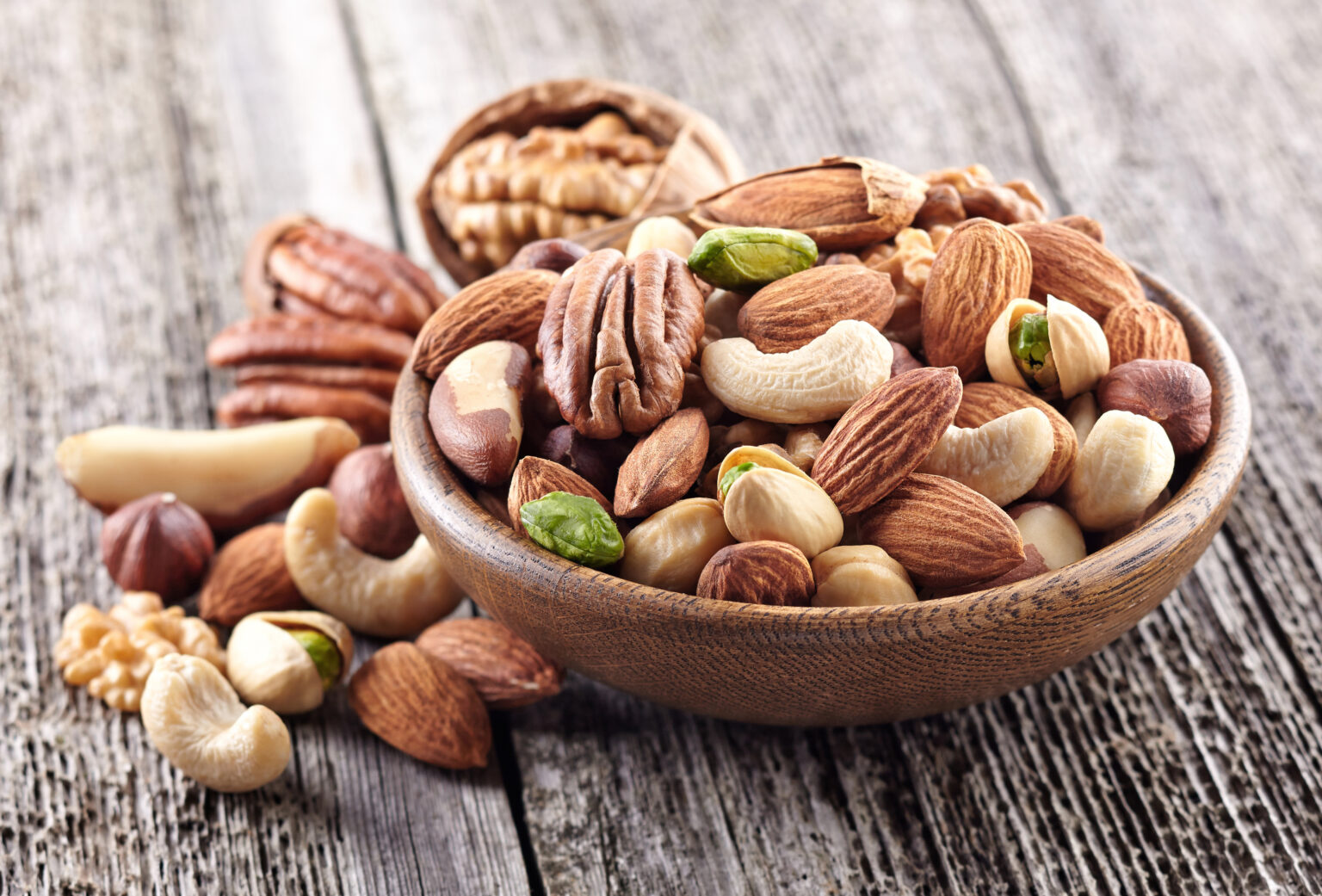If you’re looking to add more protein to your diet, nuts are an excellent choice. Not only are they high in healthy fats, fiber, vitamins, and minerals, but they’re also a great source of plant-based protein. In fact, all types of nuts contain protein, but some varieties are especially high in this vital macronutrient.
To help you get the most protein for your money, we’ve ranked the top nuts with the highest protein content. Whether you’re looking for a quick snack or a way to add some protein to your favorite dishes, these nuts are sure to deliver. So grab a handful and enjoy the many benefits of these superfoods!
High Protein Nuts, Per 1-Ounce Serving
If you’re looking for a protein-packed snack, nuts are a great option. Based on data from the United States Department of Agriculture (USDA), the following nuts offer the most protein per one-ounce serving:
- Almonds: 6 grams of protein
- Pistachios: 6 grams of protein
- Cashews: 5 grams of protein
- Peanuts: 4 grams of protein
- Walnuts: 4 grams of protein
- Pecans: 3 grams of protein
- Hazelnuts: 3 grams of protein
- Macadamia nuts: 2 grams of protein
While these nuts are a good source of protein, keep in mind that they also contain fat and calories. It’s important to enjoy them in moderation as part of a balanced diet.
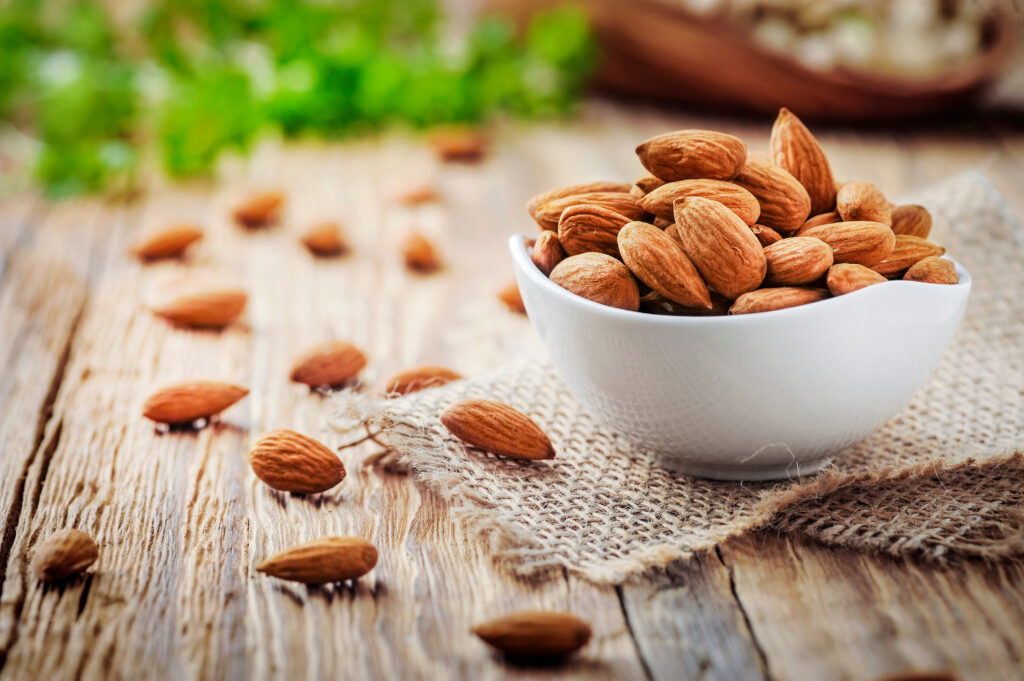
Almonds
Almonds are a great source of healthy nutrients and functional benefits. They are also one of the highest-protein nuts, containing approximately 6.01 grams of protein per serving. In addition to protein, almonds are rich in unsaturated fats, prebiotic fiber, and micronutrients such as magnesium, vitamin E, copper, and phosphorous. Incorporating almonds into your meals and snacks can provide you with a super boost of protein and micronutrients. There are various ways to enjoy almonds, including eating them by the handful, seasoning and roasting them, blending them into pesto, or enjoying almond butter on toast.
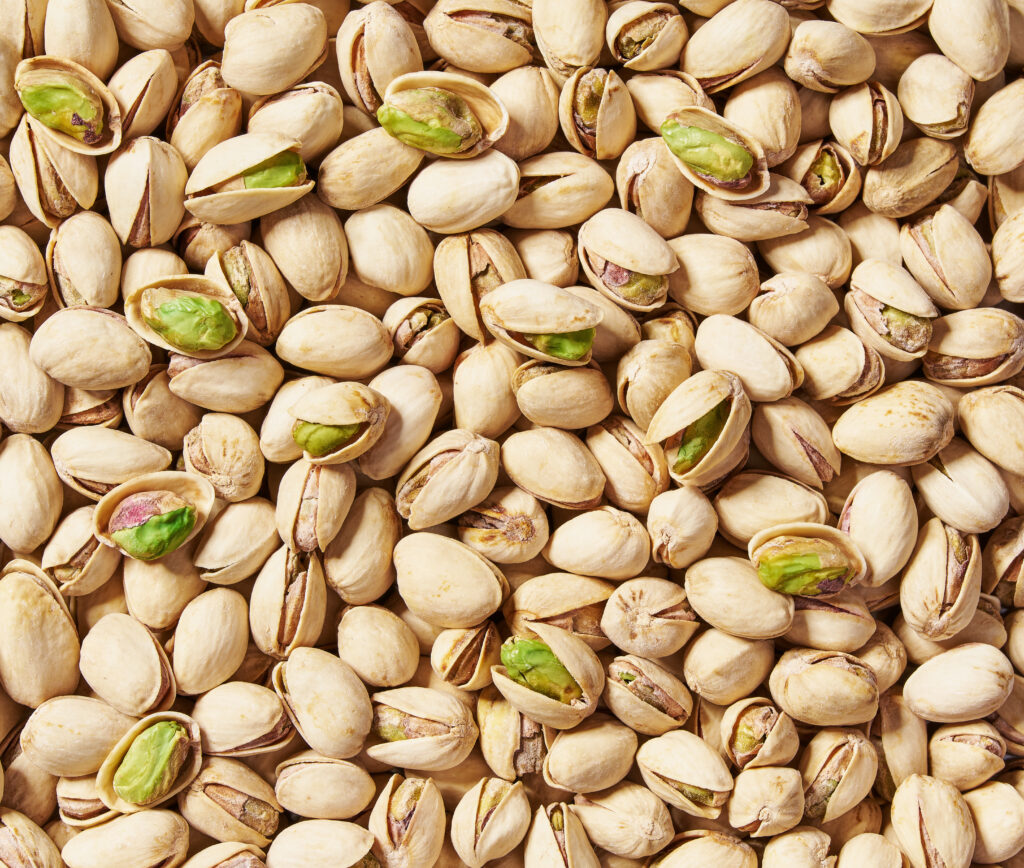
Pistachios
Pistachios are the edible seeds of the pistachio tree, and they can be used in various sweet and savory recipes. Shelled pistachios are an excellent source of protein, containing 5.73 grams of protein per serving. Unlike other tree nuts, pistachios are a complete protein source, meaning they contain all nine essential amino acids. Pistachios are also rich in vitamins, minerals, and phytochemicals, making them a healthy addition to your diet.
In addition to being a nutritious snack on their own, pistachios can be used to add flavor and texture to a variety of dishes. You could incorporate pistachios into risottos, make pesto, soup or into healtlhy, homemade protein bars.
Incorporating pistachios into your meals is a great way to boost your protein intake and add some extra nutrients to your diet.
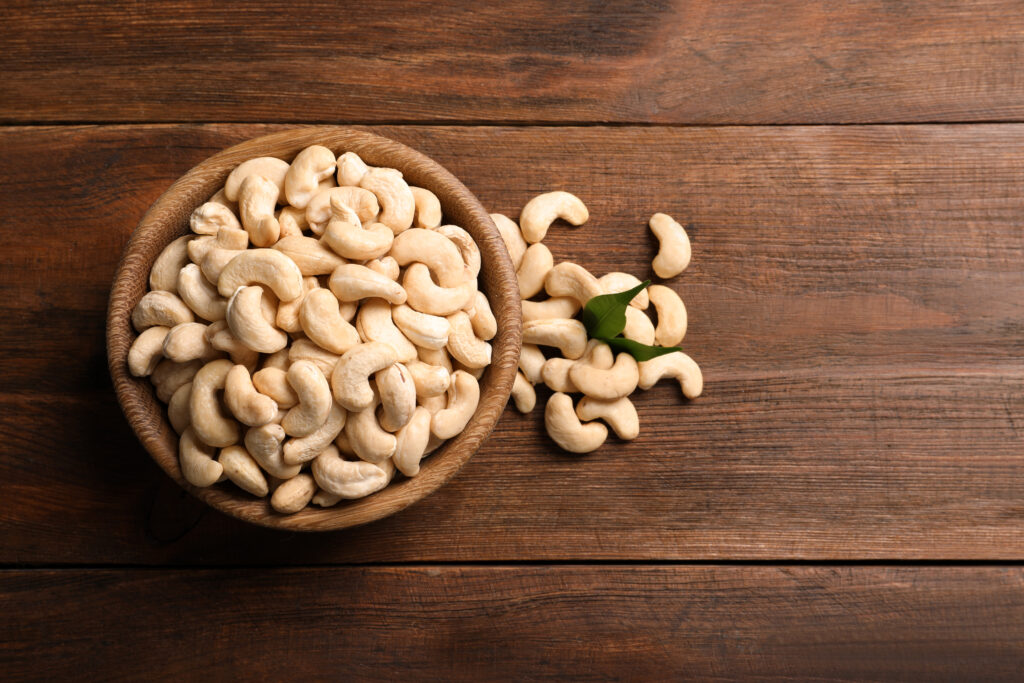
Cashews
Cashews are a delicious and filling snack that can also be used in a variety of recipes. While they are higher in fats than some other nut varieties, they also contain around 5 grams of protein per ounce. This makes them a great addition to smoothies, dips, sauces, and dressings for added creaminess without the need for dairy-based cream or cheese.
With their versatility and protein content, cashews are a great addition to any diet.
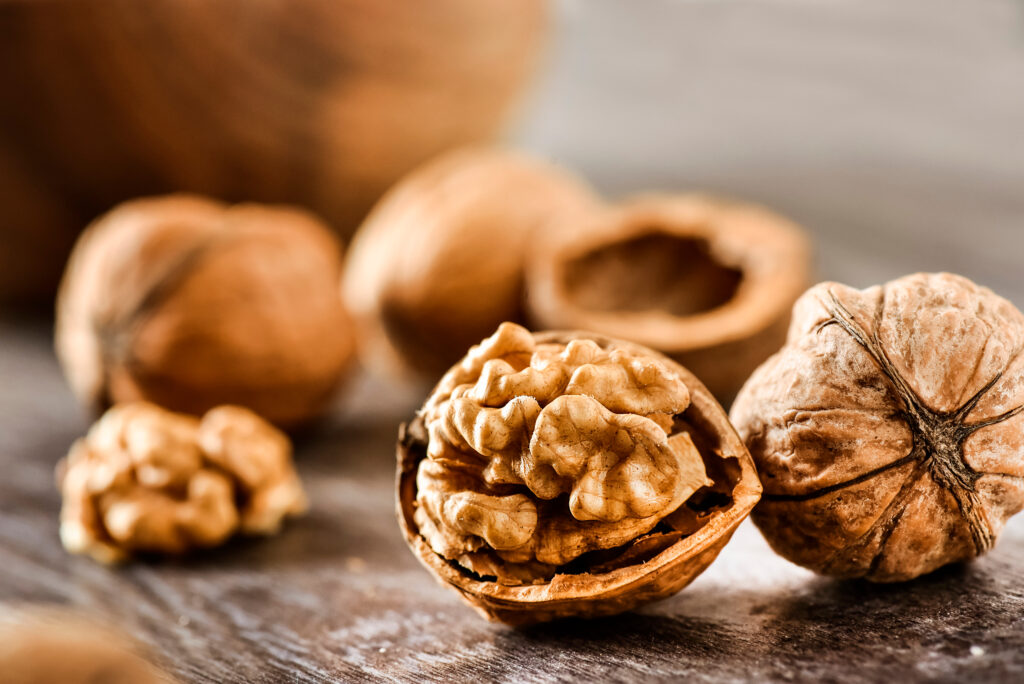
Walnuts
Walnuts are a great source of protein, with 4.31 grams per serving. These brain-shaped nuts are rich in omega-3 fatty acids, polyphenols, and other nutrients that support brain function and cognition. In addition to their brain-boosting benefits, walnuts are also known to support heart health, gut health, and immunity.
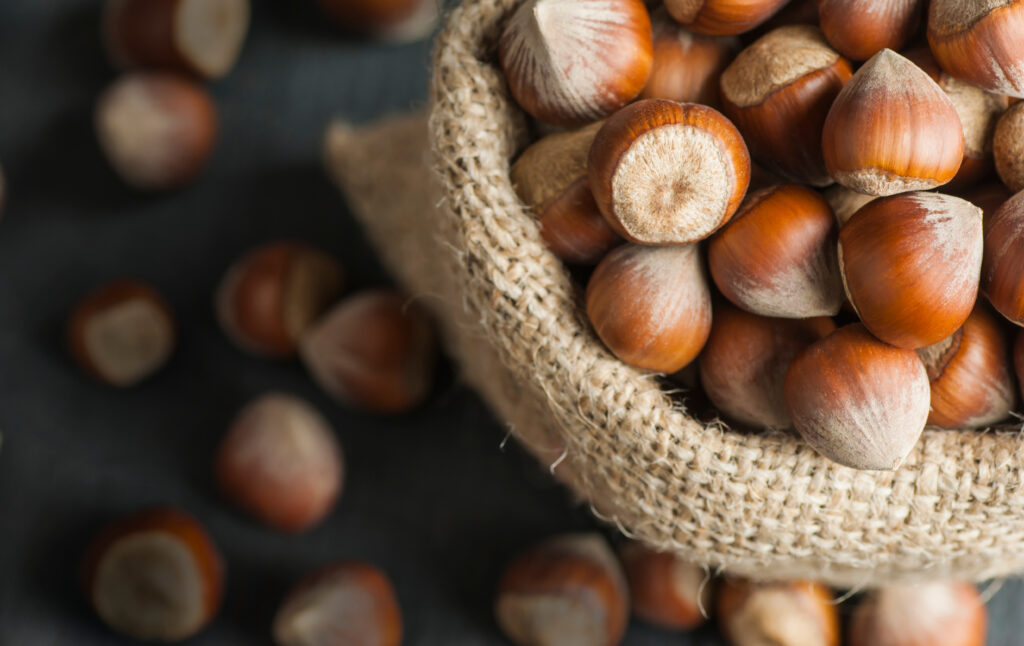
Hazelnuts
Hazelnuts are not only delicious but also a great source of protein, with 4.25 grams of protein in just one ounce. Although they are most commonly known for their use in Nutella, hazelnuts can be used in a variety of dishes, from salads to pastas to sweet potatoes and trail mixes. Adding hazelnuts to your meals not only adds a satisfying crunch and flavor but also provides a hit of plant protein.
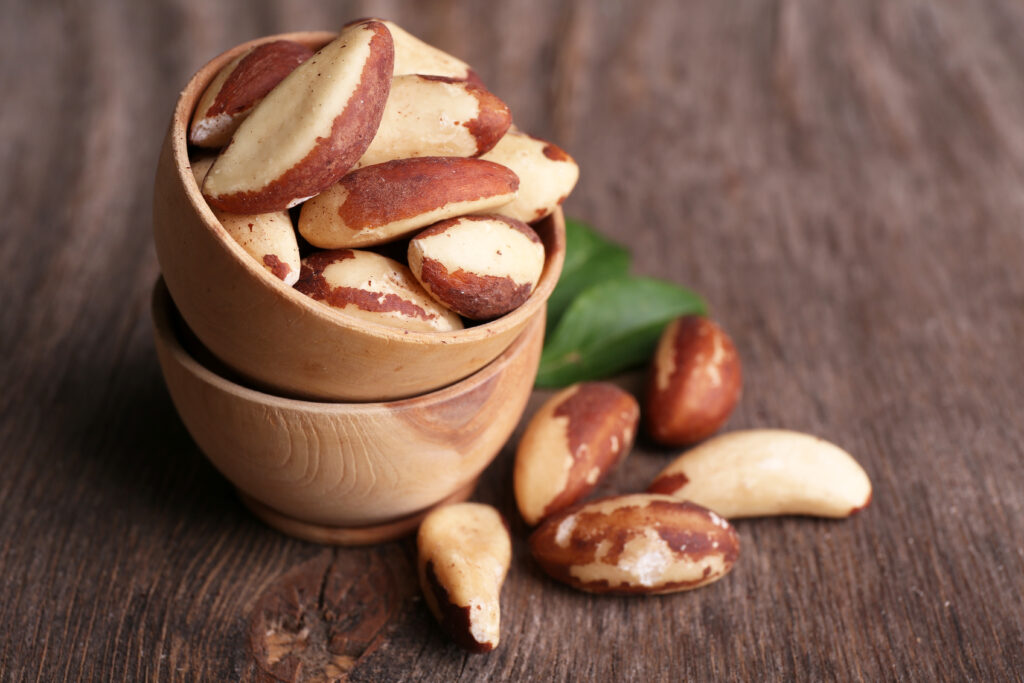
Brazil Nuts
Brazil nuts are a great source of plant protein, containing 4.01 grams per serving, just behind hazelnuts. Additionally, they are one of the richest natural sources of selenium, a trace mineral that has antioxidant and anti-inflammatory properties. Selenium is essential for several body systems, including immunity and mental health.
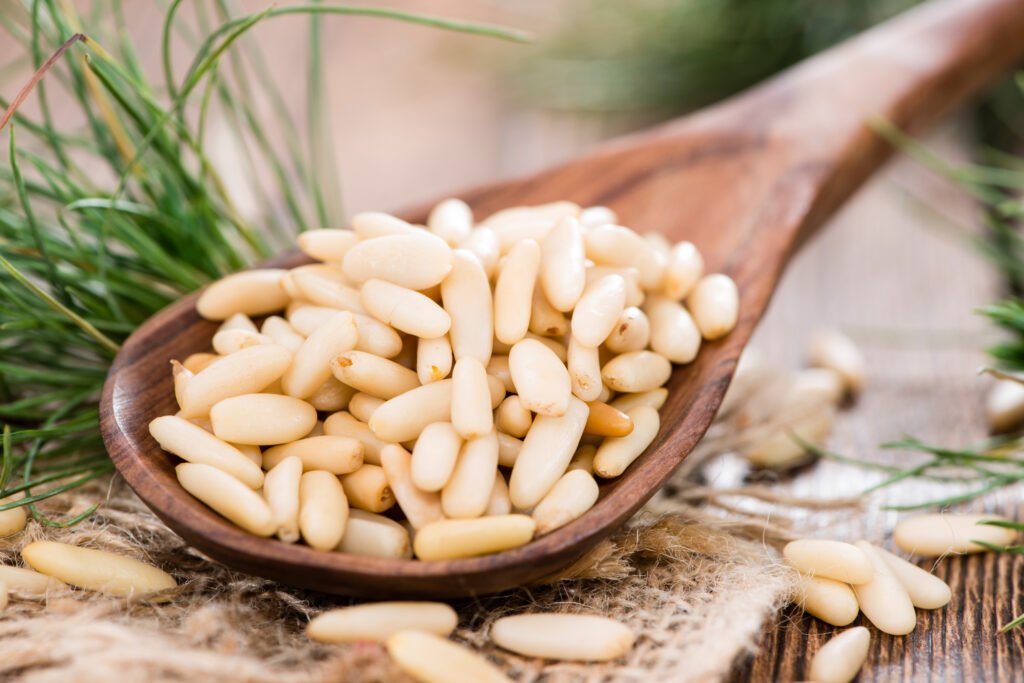
Pine Nuts
Pine nuts are not only delicious, but they also offer health benefits. With 3.88 grams of protein per serving, pine nuts are a good source of protein. Additionally, they contain pinolenic acid, a healthy fatty acid that has potential benefits for chronic inflammatory and immune diseases as well as metabolic disorders.
Consider adding pine nuts to your diet as an occasional indulgence to reap their health benefits.
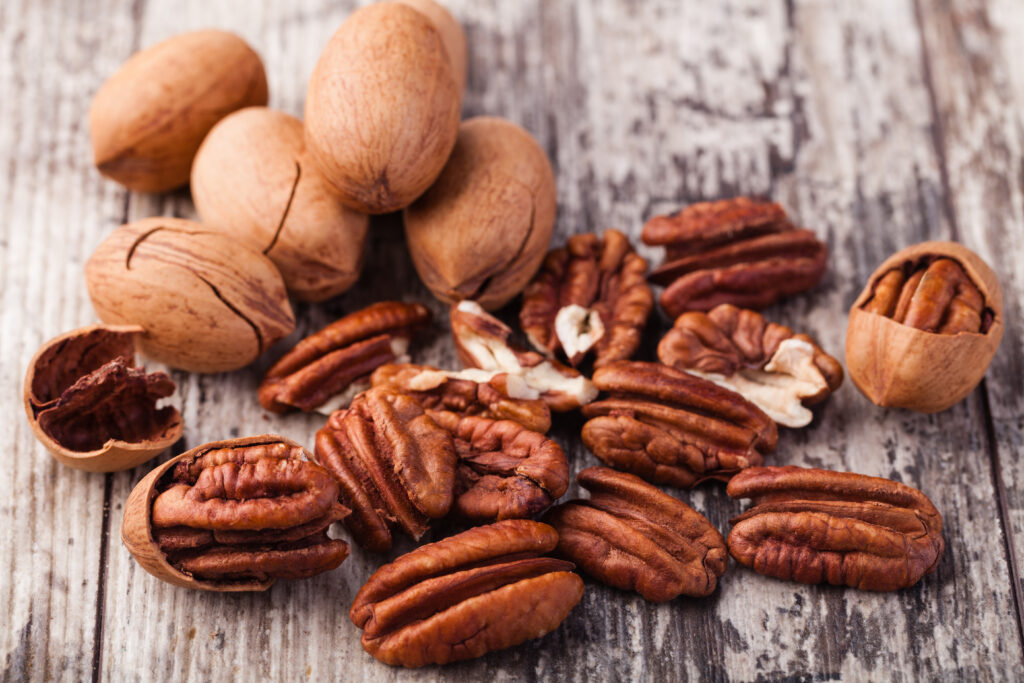
Pecans
Pecans are a versatile and nutritious nut that can enhance the flavor and texture of many recipes. Although pecans have less protein than some other nut options, they are still a good source of plant protein, providing about 2.6 grams per serving. Pecans are also high in fiber, heart-healthy monounsaturated fat, and a variety of essential nutrients such as copper, manganese, zinc, and thiamin. Adding pecans to your diet can help support your overall health and well-being.
Incorporating pecans into your meals can add flavor, texture, and nutrition to your diet.


